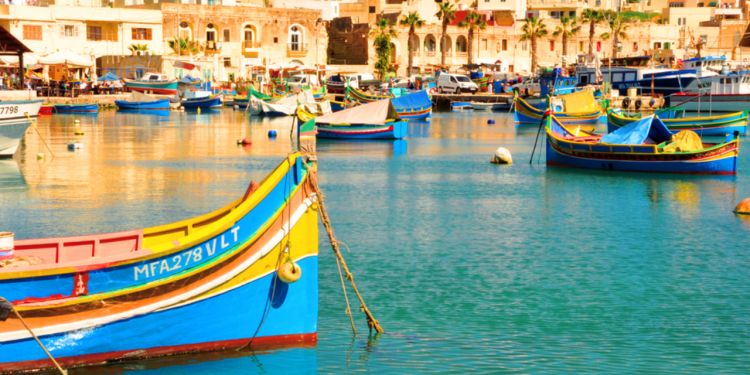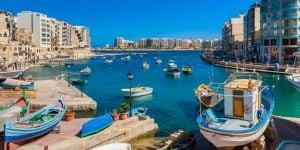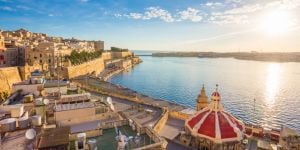
Obtaining a resident card and work permit is an essential step for any expatriate in Malta. While it is possible to live in Malta without working, many foreigners take advantage of their stay in the country to seek employment. If you are considering settling and working in Malta, it is advisable to start the procedures in advance. Indeed, for any stay longer than 3 months on Maltese territory, non-Maltese citizens must obtain an electronic residence card.
Moving to Malta for Work
European Union/European Economic Area nationals and their family members are allowed to live and work anywhere in the EU. These citizens can utilize the EURES services (European Employment Services – under the authority of Jobsplus, Malta's public employment service) to search for a job in Malta.
Third-country nationals, however, must apply for an authorization to work in Malta. This work permit is issued to foreign nationals with specific qualifications and skills that are not available locally. Thus, to hire a third-country national, the employer must ensure that they possess the required skills and represent a unique profile to justify the work permit application on behalf of the candidate.
If you are from a non-EU country, you will therefore need to apply for the single permit, which includes both the right to reside and work.
If you intend to start a business in Malta, contact Malta Enterprise, the official national development agency.
Important:
Identity Malta issues eResidence documents while collaborating with JobsPlus, Malta's public employment service.
Find the list of documents required for the single residence and work permit application on the JobsPlus website. The application must be submitted to Identity Malta.
The Maltese eResidence Card
To live and work in Malta, you must obtain a Maltese residence card, or rather an eResidence card, from Identity Malta, the dedicated government service. This document covers all types of residence statuses available to foreigners (whether they are EU nationals or not) living in Malta, including those registered under tax schemes managed by the Office of the Commissioner for Revenue.
Residence permit in Malta for EU/EEA/Swiss nationals
Although EU nationals enjoy the right to free movement, they, along with EEA and Swiss nationals, must apply for a residence permit (eResidence card) to live and work in Malta for any stay exceeding three months in Malta. The Maltese government offers several types of residence permits, including the Employment/Self-Employment permit. The residence permit allows its holder to seek employment, work (as an employee or self-employed), and start a business in Malta.
Residence permit in Malta for British nationals
What about the residency status of British nationals after Brexit?
British nationals who were already residing in Malta before Brexit retain their status if they comply with the conditions set out in the withdrawal agreement and national legislation. However, they must apply for the new eResidence card.
On the other hand, British nationals wishing to live and work in Malta must apply for the single permit (see below) or the European Blue Card (intended for highly qualified individuals).
Temporary residence permit for foreign professionals in Malta
Third-country nationals can apply for a Temporary Residence Permit (TRP) to legally reside in Malta.
The TRP is issued by the Maltese government to individuals residing in Malta for a specific reason and for a limited duration. This may include posted workers, individuals participating in the working holiday program, or interns.
The Temporary Residence Permit is therefore intended for individuals wishing to reside temporarily in Malta. The holder of this type of permit is not subject to Maltese income tax and capital gains from abroad, even if these are remitted to Malta.
The application for a temporary residence permit must be sent to Identity Malta.
Application for a single permit and work permit in Malta
Third-country nationals can apply for a single permit, which serves as both a residence and work permit (referred to as an "employment licence") in Malta, for a specified period exceeding six months. The application process involves checks by the police, immigration office, and JobsPlus.
Note that third-country nationals under international or humanitarian protection in Malta or another EU member state (such as refugees) are not eligible for the single permit. Moreover, third-country nationals who are family members of EU/EEA/Swiss nationals do not need a single permit to work.
Characteristics of the single permit
You are required to secure a job offer in Malta before you can apply for a single permit. In fact, the application must be endorsed by the employer. If you are still in your home country, your employer can submit the application on your behalf. You will only be able to move to Malta once the application is approved. The single permit is valid depending on the nature of the job and the employment contract signed by you and your employer. If the applicant no longer holds the specified job, the permit will no longer be valid.
The single permit must be renewed annually within 90 days before the expiration date.
Important:
The current permit must still be valid when you apply for renewal.
New applicants, permit renewal applicants, applicants still abroad, and sector-specific applicants should consult the forms provided by Identity Malta in the "Single Permit" section.
For new applicants, the application is done online by the employer. The latter logs in to singlepermit.gov.mt, then the applicant confirms the application and validates the accuracy of the information provided. There is an application fee of €300.
Domestic helpers can apply for permits directly, provided the application is approved by the employer. They are required to complete form C2 or form C5 (for those still abroad) and submit the required documents, or apply online. In both cases, a fee of €27.50 applies to the procedure.
The "Key Employment" Initiative for highly specialized workers in Malta
The "Key Employee Initiative" (KEI, or Blue Card) is a residence and work permit intended for highly qualified non-EU nationals seeking to work in Malta.
This system facilitates the issuance of work/residence permits to prospective employees whose skills are sought-aftter in Malta. The procedure is fast: under normal circumstances, it should not exceed 5 working days from the date of application.
The key employee initiative is intended for executive positions and highly technical positions requiring relevant qualifications or adequate experience related to the proposed job. It also applies to innovators involved in start-up projects supported by Malta Enterprise.
Here are the eligibility conditions to apply for the KEI:
- The gross annual salary must be at least €35,000 per year;
- Copies of relevant qualifications, or justifications or proof of necessary work experience, must be provided;
- The employer must submit a declaration stating that the applicant possesses the necessary qualifications for their future duties.
The "Key Employment" initiative grants a residence permit valid for one year. Upon renewal, the validity period can exceed one year if the applicant presents a valid fixed-term or indefinite employment contract, along with the original annual tax declaration form.
The Residence Programme: A special tax status in Malta
The "Residence Programme (TRP)" is a program designed for EU, EEA, or Swiss nationals who are not permanent residents of Malta. This scheme is attractive for individuals looking to transfer their tax residence.
The beneficiary has the option to employ domestic staff to provide a service in their eligible property, provided all required procedures are followed. The staff must obtain a single permit to work in Malta.
The applicant must:
- Provide proof of financial independence;
- Purchase or rent a property in Malta;
- Have a comprehensive health insurance covering their stay in Malta.
The tax rate for TRP beneficiaries is 15% for each euro on any income received in Malta from foreign sources by the beneficiary and their dependents. The rate is 35% for other taxable income in Malta, such as bank interest received from a local source or dividends received from a company registered in Malta.
An annual minimum tax of €15,000 applies to individuals or couples who are residents but not permanent residents in Malta.
Foreign income and your capital gains from outside Malta are not taxable in Malta.
Good to know:
This program, solely a tax system, does not automatically guarantee obtaining the Maltese residence card, which is subject to a separate procedure.
Permanent residence for EU/EEA nationals in Malta
EU nationals and their family members can obtain permanent residence in Malta, renewable, in another EU country after having legally lived there for a continuous period of five years.
The applicant must provide the application form accompanied by certain documents depending on their situation (employee, self-employed, student, etc.), such as payslips and evidence showing they have lived in Malta for five years. However, there is also the risk of losing the right to permanent residence by living outside Malta for more than two consecutive years. Therefore, make sure to consult a lawyer for all legal details and procedures.
Long-term residence for third-country nationals in Malta
After having legally lived in Malta for five years, third-country nationals are eligible for a long-term residence permit.
Here are the conditions you have to meet to apply for long-term residence:
- Be economically self-sufficient;
- Have an income at least equal to the Maltese minimum wage, increased by 20% for each dependent family member;
- Rent or own a property in Malta. The accommodation must be considered normal for a family in Malta and meet the standards set by the housing authority. This must be confirmed by a certificate issued by a licensed architect;
- Have health insurance covering the applicant and all family members;
- Have followed integration measures, in particular: the "I Belong" course delivered by the Human Rights and Integration Directorate (at least 100 hours of attendance and a passing grade of at least 75% are required for qualification), the MQF level 2 Maltese language certificate (passing grade of at least 65%).
The application fee is €137.50.
The Global Residence Programme (GRP) in Malta
The Global Residence Programme (GRP) is open to nationals of non-EU, EEA, and Swiss countries who do not have a long-term residence permit. It is a special tax status administered by the Office of the Commissioner for Revenue. Beneficiaries of this program can work in Malta if they meet the conditions required to obtain a work permit.
The conditions to benefit from the global residence program in Malta are quite strict. The applicant must:
- Invest in a property valued at least €275,000 (€220,000 in some regions)
Or
- Establish a rental contract valued at least €9,600 (€8,750 in some regions);
And
- Make the application through an accredited agent.
Expect to pay administrative fees of €6,000 or €5,500 (depending on the applicant's situation).
Digital nomad visa in Malta
Why not live and work as a digital nomad in Malta? Since 2021, the nomad residence permit allows non-EU nationals, including freelancers, to work remotely while living in Malta for a year, renewable. The key is to work for any employer or client registered outside Malta. So if you work remotely, this visa is the ideal opportunity to immerse yourself in Maltese culture and enjoy all the country's great wealth.
Applicants must have a gross annual income of at least €42,000 (or €32,400 if they applied before April 1, 2024) and must provide, among other things, a valid passport, the application form, proof of accommodation, proof of sufficient funds, and health insurance.
The application must be made online through the Residency Malta Agency.
Useful information:
Identity Malta, Expatriates Unit
Triq Il-Wied Ta' L-Imsida (Valley Road, Msida) L-Imsida, Malta.
Telephone: 2590 4800
Email (for EU nationals): eu.identita@gov.mt
Email (for non-EU nationals): noneu.identita@gov.mt
Important:
Remember that you must have a good command of English to work in Malta.
Good to know:
Nationals of certain countries need a visa to enter Malta.
Useful links:
Identity Malta - Expatriates Unit
EU and non-EU nationals - Online application procedure on the portal
We do our best to provide accurate and up to date information. However, if you have noticed any inaccuracies in this article, please let us know in the comments section below.








